Brazil has a significant share in the global gaming market. The country occupies tenth place in the world ranking for revenue generated by digital games, with 92.4 million players, who consumed US$ 2.5 billion in products and services last year.
Also worthy of note is the Brazilian game industry, which has been reporting record numbers. Last year, exports of games developed here grew 600%, resulting in a revenue that exceeded US$ 2 billion.
Dynamic as it is, the gaming market has been influenced by new technologies, such as crypto-assets (mainly non-fungible tokens, NFTs) and by the possibilities brought by the metaverse. The Brazilian government, banks and other private institutions have been investing in the industry, which is showing increasing promise. Regulatory initiatives have also emerged in the country. Here we bring a few insights about how the gaming market has developed in Brazil in recent years, and what to expect for the future of the industry in the country.
What does the gaming market look like in Brazil today?
Nowadays, the gaming industry has called the attention of investors and stakeholders, mainly due to the impressive numbers that the area has been presenting in Brazil, which has a significant share in the global gaming market. We are ranked tenth in the world for revenue generated by digital games, with 92.4 million players, who consumed US$ 2.5 billion in products and services last year.[1]
Also worthy of note is the Brazilian gaming industry, which has been registering record numbers. Last year, exports of games developed here grew 600%, represented by a total of 140 companies participating in the Brazil Games project, an initiative of the Brazilian Trade and Investment Promotion Agency (Apex-Brasil) and Abragames (Brazilian Association of Electronic Game Developers). In total, revenues exceeded US$ 2 billion.
Today a promising national market, games have not always been protagonists in the national entertainment sector. Only in 2011 the country, through the Ministry of Culture’s Ordinance 116/2011, inserted electronic games in the list of cultural segments, making it possible to raise funds through the Rouanet Law[2], one of Brazil’s main tax incentive mechanisms, with the aim of stimulating support from private enterprise to the cultural sector.
It is a consensus that the Brazilian gaming market has always lagged behind the rest of the world. The historical context of the 70’s and the computer market reserve policy in effect at the time, which prohibited the import of foreign electronics, had the objective of heating up the national technological industry, a measure that proved to be harmful to the specific development of more advanced technologies, such as those responsible for games.
Most of the Brazilian technological developers limited themselves to replicating the models from abroad, with no new creations. While the outside world was playing Playstation, Brazil was still playing Super Nintendo[3]. In this sense, Atari, a console from the 70’s, was very popular in 1990 and the root of vintage taste was much more than a cultural choice, but the option available in the then closed Brazilian market. The nostalgia present in the taste of gamers of yesteryear and today reflects a kind of popular opinion – it is noticeable that independent and often smaller games stand out in the national market.
A few years after the early days of electronic games, Brazil is now a protagonist in this industry, considering that about 75% of the Brazilian population is involved, in some way, with videogames[4]. In this context, the Brazilian Association of Electronic Game Developers (Abragames) recently announced that the Brazilian delegation at the GDC (international meeting of game developers) yielded 23 million dollars in contracts for Brazilian studios.
According to a report from the External Development Summit, Brazil has received frequent investments in the area, as the country has become one of the leading game developers in the world. According to the consultancy Newzoo, Brazil is considered the largest gaming market in Latin America, generating revenues of approximately 11 billion reais (US$ 2 billion).
One can say that the Covid-19 pandemic was crucial to the significant increase in the industry, taking into account the need to practice social distancing and, as a consequence, the longer time spent indoors. The pandemic has boosted the expansion of the gaming market, generating a growth of about 20% by 2020 and moving about 165.6 billion dollars worldwide[5], surpassing the sum of both the movie and music industries.
According to the Survey Game Brasil 2021, the smartphone was appointed as the favorite platform of 41.6% of Brazilian gamers. Note that Brazil today is home to 242 million smartphones in use, considering a population of 212 million inhabitants[6]. It is possible to conclude, therefore, that the compatibility between games and smartphones allows greater accessibility for interested citizens, thus reaching a larger number of players. Currently, mobile games represent 52% of the industry, surpassing those made for consoles and PC[7].
The rise and popularization of virtual reality instruments, such as AR headsets, is also a relevant factor for the increase in interest and engagement in the sector. These gadgets allow greater interactivity to the player, generating a feeling of immersion in the virtual world, mixing elements of the physical world with the digital.
A dynamic industry: the influence of blockchain and the metaverse on the gaming market
The growth of the gaming market has led to a number of initiatives and partnerships in the country. This is the case, for example, of the already mentioned Brazil Games Project, a partnership between the Brazilian Association of Digital Game Developers, Abragames, and the Brazilian Trade and Investment Promotion Agency, Apex-Brasil.
In addition, new technologies such as NFTs (non-fungible tokens) and the metaverse have drawn attention to the endless business possibilities in the gaming world. Despite the down cycle of the crypto market, Brazilian companies and investors continue investing in the sector. This is the case of the NFT game “Heroes of Metaverse”, which raised R$14 million (about US$2.7 million) in an investment round this year. During the pre-sale phase, the company responsible for the game raised R$ 4.5 million (US$ 900,000) in 24 hours by selling collectibles related to the game.
As would be expected, the development of this industry has also attracted the attention of major Brazilian banks. The Bank of Brazil announced last month its entry into the metaverse, with a new game in the virtual world of Roblox. The project is in the testing phase and should be launched in October at the Brasil Game Show (BGS). With the game’s goal of providing the experience in the metaverse to the young public, Bank of Brazil’s game will enable users to play in interactive environments focused on sports and culture, always with the country’s tourist attractions in sight. The initiative is part of a strategy to extend the bank’s vision beyond the financial sector, as a company that operates in other segments, such as sports and culture.
Bank of Brazil also has the site “Tamo junto nesse game”, with information about sponsorship of e-sports teams, as well as information about financial services for the gamer community. In this environment, BB DTVM, the Bank’s investment fund manager, launched two funds aimed at players of the Complex RolePlay server: BB Metaverso Multimarket FTW and BB Metaverso Fixed Income FTW.
Other large banks, such as Itaú and Santander, have developed services with targeted language and specific solutions to meet gamers’ main financial demands.
Regulatory initiatives for the gaming industry
The almost exponential increase in the popularity of electronic games has generated seductive opportunities, but on the other hand, it has also ignited a wave of concern in the most diverse sectors. The World Health Organization has even recognized game addiction as a disease[8], warning about the multiple consequences of connectivity excesses. China itself, the world’s largest gaming market, has even restricted online gaming for children, limiting access to only 3 hours a week[9].
In this same direction, there are some Brazilian bills that aim to prohibit or somehow restrict electronic games, mostly those with violent content. Several bills have been introduced in recent years with the aim of limiting the scope of e-games, either by restricting them to minors, or by censoring them from violent or obscene content.
Another controversial issue is that of loot boxes, present in numerous games. Although there is no specific law or regulation on the subject in Brazil, some civil society organizations have advocated for the ban of this feature in games, comparing them to gambling (whose regulation is more restrictive in the country) and claiming that they represent a risk for children and adolescents. Lawsuits have already been filed against video game companies such as Electronic Arts, Nintendo, Riot Games, Ubisoft, Apple, Google, Microsoft, Konami, and Tencent. While no ruling has been issued in these lawsuits, the Public Prosecutor’s Office of the Federal District has already expressed its support for banning loot boxes in games aimed at children.
Last year, Bill 2796/21, was presented, which aims to regulate the gaming industry through a legal framework. By defining an electronic game as “software that runs on microcomputers or dedicated consoles [videogames], in which the user controls the action and interacts with the interface [game]”, games of chance are excluded from the project’s scope.
The project, in addition to regulating the sector, advocates for the incentive and increase of jobs in the sector, also reducing the tax burden related to it, consequently reducing the incidence of crimes such as smuggling, closely related to the sector. In addition, the text encourages the creation of technical qualification courses related to programming, allowing the use of games for educational purposes, such as emergency simulations, vehicle driving, etc. The bill also provides for preference in the acquisition in bids promoted by the Public Administration, considering the adequacy to the criteria imposed by the State.
Some final thoughts
There is no doubt that the gaming market is one of the most promising today. The expectations couldn’t be better, either worldwide or in Brazil. However, with the expansion of this industry, which is increasingly permeated by emerging technologies, new commercial and regulatory challenges arise. Sometimes, navigating through the different normative initiatives of a given country can be complicated, although it is an indispensable step to be compliant with all the rules related to the matter. Issues such as personal data protection, tax issues, intellectual property matters, amongst others, can be particularly tricky in an industry as dynamic as the gaming sector.
If you want to learn more about the universe of games
in Brazil, be sure to check out our booklet on the subject[10],
or get in touch with one of our professionals to start or deepen dialogs and
partnerships.
[1] https://valorinveste.globo.com/produtos/servicos-financeiros/noticia/2022/06/22/com-mercado-que-gira-us-25-bi-ao-ano-no-brasil-bancoes-estao-de-olho-no-gamer-money.ghtml
[2] https://blconsultoriadigital.com.br/regulacao-de-e-games-brasil/
[3] https://gamarevista.uol.com.br/cultura/ler-ouvir-ver/historia-da-industria-de-jogos-de-computador-no-brasil/
[4] https://veja.abril.com.br/tecnologia/a-evolucao-do-brasil-no-mercado-de-games/
[5] https://valor.globo.com/eu-e/noticia/2021/04/16/distanciamento-na-pandemia-impulsiona-industria-de-games-no-brasil.ghtml
[6] https://www.cnnbrasil.com.br/business/brasil-tem-mais-smartphones-que-habitantes-aponta-fgv/#:~:text=S%C3%A3o%20242%20milh%C3%B5es%20de%20celulares,a%201%2C6%20por%20pessoa.
[7] https://monitormercantil.com.br/gastos-com-games-online-subiram-695-em-2021/
[8] https://exame.com/ciencia/vicio-em-games-e-reconhecido-como-doenca-pela-oms-saiba-como-identificar/
[9] https://veja.abril.com.br/mundo/china-restringe-videogame-para-menores-a-tres-horas-por-semana/
[10] Avaiable in Portuguese here: https://opiceblum.com.br/wp-content/uploads/2019/07/cartilha_e_games_versao_final_02.09.pdf.






